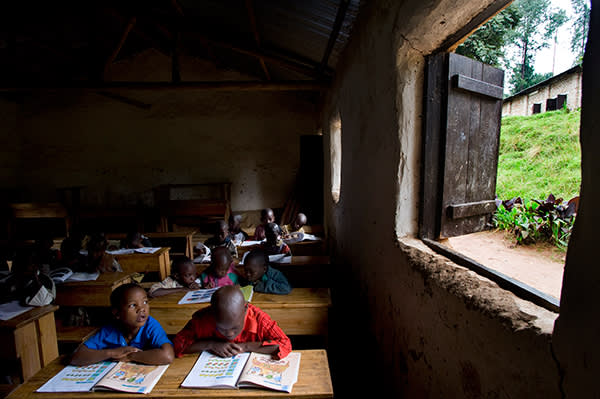Reverse Culture Shock
This week and previous weeks we have focused a lot on study abroad and some of the major topics that surround studying abroad. One of those topics that often gets over looked is reverse culture shock. It’s important not to get a regular culture shock confused with reverse culture shock. A regular cultural shock is described as the transition one undergoes when they arrive to a foreign country. Reverse culture shock has different characteristics than a regular culture shock. For example, the shock one experiences don’t come from unfamiliar surroundings. Using Alison Blazer’s definition, it is rather described as “the shock one undergoes when they are surrounded by everything they knew before that had their experience abroad.” Reverse culture shock is a normal symptom that students who study abroad have once they return back to the United States.  Their experience in a foreign environment has an influence on how they view the world and often causes emotional and psychological distress trying to readjust to lives in their home country. Many factors can influence the degree and magnitude of culture shock that one undergoes. For example, the amount of time spent in another country or the extent of differences in cultures from the student’s home country and the country they are studying abroad in can all play a role. Reverse culture shock is very real and definitely takes a great supporting cast to help the student readjust to their daily routines.
Their experience in a foreign environment has an influence on how they view the world and often causes emotional and psychological distress trying to readjust to lives in their home country. Many factors can influence the degree and magnitude of culture shock that one undergoes. For example, the amount of time spent in another country or the extent of differences in cultures from the student’s home country and the country they are studying abroad in can all play a role. Reverse culture shock is very real and definitely takes a great supporting cast to help the student readjust to their daily routines.
Global English Instruction
Studies have been done to understand the size, shape, and trends of English medium instruction across the globe. Research has suggested that English medium instruction is expanding on the global scale and governments are backing the movement. However, public opinions haven’t been as quick to jump in on the movement. They still view teaching subjects through English instruction as controversial but haven’t bluntly shut down idea. The argument or fear from the public is seeing English medium instruction becoming too large and having too much influence on their countries identity. The fear of losing their countries first language is the major concern for the general population of countries who don’t use English as their primary language. Even if countries wish to move forward with English medium instructions they still face several obstacles in implementing it into their education system. One of those obstacles is the shortage of qualified teachers and little efforts being done for professional development of those teachers. Much more research will need to be done to address the concept of a global adoption of English medium instruction. Decisions will lie in policy maker’s hands and until we better understand the consequences and potential outcomes of English medium instruction, it will be very tough one for them to make.
Third Culture Kids Transition to Higher Education
Third culture kids are described as people who are raised in a culture other than their parents culture. Third culture kids are also known as “Global Nomads.” Families have become more mobile due to the growing global economy. In correlation, the number of TCK students has rose. TCK students are often exposed to much greater cultural influences than normal students. TCK students generally experience a lack of connection to the different cultures they are put in because of their temporary lifestyles. Research has suggested that transitioning into a higher education institution has relied on their preparedness prior to their transition, initial experience during the transition, adjustment during the transition, and stabilization (Purnell, L). Most of the research done on TCK kids can be attributed to Pollack’s Transition Model of 1990 and J.T. Gullahorn and J.E. Gullahorn’s W Curve Model of 1963. The research suggested that success for TCK students was attributed to students who received preparation from their school and family before they made the move. Socially isolated TCK students experience transitional hardships.
References
Blazer (2013, February 20). Reverse Cultures Shock
Dearden, J. (2015) English and a medium for instruction – a growing global phenomenon British Council Report.
Purnell, L. & Hoban, E. (2014). The lived experiences of Third Culture Kids transitioning into university life in Australia. International Journal of Intercultural Relations, 41, 80-90


